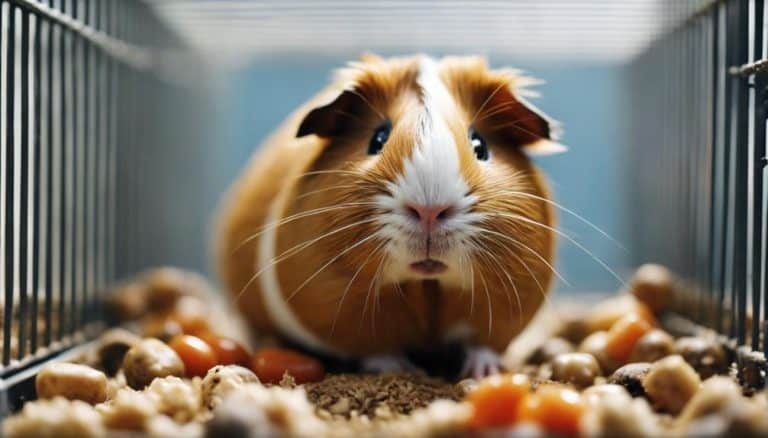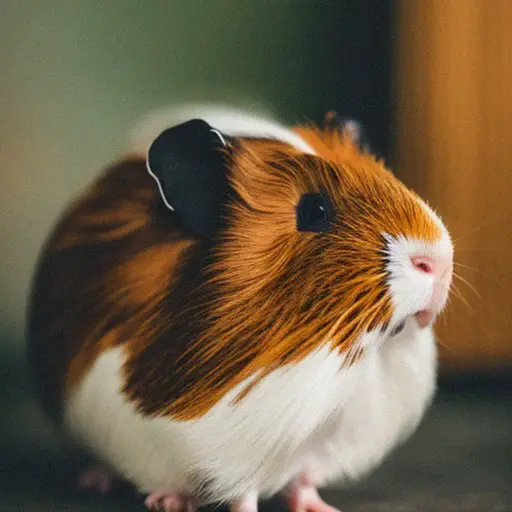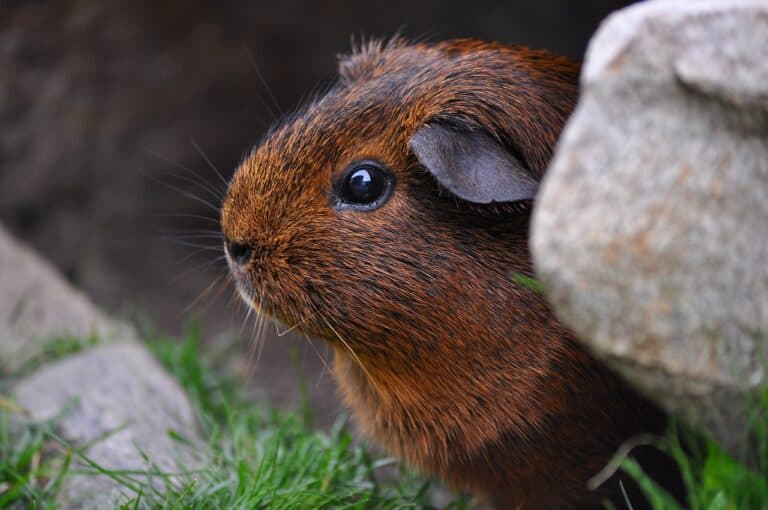Common Guinea Pig Health Issues: Why Stuffy Noses Are More Than Just a Cold
If you have a guinea pig, you know how cute and cuddly these small pets can be. However, just like any other pet, there are certain health issues that can arise. One of the most common issues involves respiratory problems, particularly stuffy noses. As a responsible pet owner, it’s important to understand these issues so you can take the necessary steps to keep your furry friend healthy.
What are the common respiratory issues that affect guinea pigs?
Upper Respiratory Infections
A guinea pig’s respiratory system is delicate and can be easily affected by viruses and bacteria, making them prone to upper respiratory infections. These infections can be caused by streptococcus, mycoplasma, or bordetella. Symptoms of an upper respiratory infection include sneezing, coughing, and difficulty breathing.
Bordetella
Bordetella is a bacterial infection that can cause respiratory problems in guinea pigs. This infection is highly contagious and can spread quickly among guinea pigs that are housed together. Symptoms of bordetella include runny nose, coughing, and loss of appetite.
Nasal Discharge
Nasal discharge is another common respiratory issue in guinea pigs. A runny nose can be an indication of an upper respiratory infection or allergies. It’s important to pay attention to your guinea pig’s nasal discharge, as a blocked nose can make it difficult for them to breathe.
How can you tell if your guinea pig has a respiratory infection?
Runny Nose
If your guinea pig has a runny nose, it could be a sign of a respiratory infection. It’s important to monitor the color and consistency of the discharge, as this can indicate the severity of the infection. A thick, yellowish discharge is a cause for concern and should be evaluated by a veterinarian.
Sneezing
It’s normal for guinea pigs to sneeze occasionally, but frequent sneezing can be a sign of a respiratory infection. If your guinea pig is sneezing more than usual or seems to be having trouble breathing, it’s important to seek veterinary care right away.
Loss of Appetite
A loss of appetite can be a sign of many health issues, including respiratory infections. If your guinea pig is not eating or drinking as much as usual, it’s important to seek veterinary care.
What can a vet do to treat respiratory infections in guinea pigs?
Prescribe Antibiotics
If your guinea pig has a respiratory infection, your veterinarian may prescribe antibiotics. It’s important to follow the dosage instructions carefully and give your guinea pig the entire course of antibiotics, even if they start to feel better before the medication is finished.
Administer Vitamin C Supplements
Vitamin C is essential for guinea pig health and can help boost their immune system. Your veterinarian may recommend vitamin C supplements to help your guinea pig fight off the infection.
Provide Nasal Drops
Nasal drops can help clear your guinea pig’s nasal passages and make breathing easier. Your veterinarian can recommend the appropriate type of drops for your guinea pig’s specific needs.
What steps can you take to prevent respiratory infections in your guinea pig?
Keep Their Cage Clean
A clean cage is essential for guinea pig health. Regularly clean and change the bedding to prevent the buildup of bacteria and viruses.
Use Appropriate Bedding Materials
Choose bedding materials that are safe for guinea pigs and won’t irritate their respiratory system. Avoid using cedar or pine bedding, as the oils in these materials can be harmful to guinea pig’s lungs.
Keep Their Living Area Well-Ventilated
A well-ventilated living space can help prevent the buildup of bacteria and viruses. Use a fan or open windows to keep the air circulating in your guinea pig’s living area.
When should you take your guinea pig to the vet for respiratory issues?
If They Have Persistent Nasal Symptoms
If your guinea pig has persistent nasal symptoms, such as a runny nose or difficulty breathing, it’s important to seek veterinary care right away. These symptoms can indicate a serious respiratory infection that requires treatment.
If They Have Trouble Breathing or Seem Lethargic
If your guinea pig seems to be having trouble breathing or is lethargic, it’s important to seek veterinary care immediately. These symptoms can be indicative of a serious respiratory infection that requires prompt treatment.
If They Exhibit Unusual Vocalizations or Sounds
If your guinea pig is making unusual vocalizations or sounds, such as wheezing or coughing, it’s important to seek veterinary care. These sounds could be an indication of a respiratory infection or other health issue.
In conclusion, guinea pigs are sensitive animals that require proper care to keep them healthy. Respiratory infections are a common issue that can arise, but with proper prevention and treatment, you can help your guinea pig live a happy and healthy life.
.”







